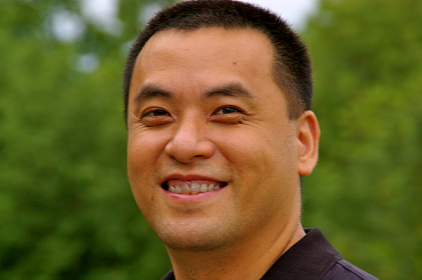
There’s still much for computer scientists and researchers to discover about the capabilities of artificial intelligence; like how it can help businesses become more efficient or how it can be a support tool for medical professionals. But one thing’s certain — AI is here to stay and will continue to transform lives well into the future.
Dr. Michael Zimmer, director of Marquette’s Center for Data, Ethics, and Society, explains the mechanics of AI, how it’s like the Wild West in terms of rules and regulations, and how it could affect your job in the future.
AI is a hot button topic in the news and will continue to be as it evolves. Can you explain what artificial intelligence is and what it can do currently?
Most of what we call “artificial intelligence” is a form of machine learning where computer systems and algorithms have been trained to look for patterns in large sets of data. For example, Amazon’s Alexa has learned to recognize spoken words and make guesses as to what phrases mean. Alexa doesn’t really know what the sentence “What’s the weather today?” means, but it has been trained to recognize those words and then provides an appropriate response. Similarly, tools like ChatGPT don’t actually understand users or engage in real, meaningful conversations. Rather, it has been trained on millions and millions of text documents to be able to learn the patterns and structure of language, and thus can string together intelligent sounding responses to text-based prompts.
These kinds of tools aren’t really “intelligent,” but they’re good at figuring out correct responses (most of the time) to specific tasks based on sophisticated statistical models. We call this “narrow” artificial intelligence because they only work in a limited pre-defined range of functions. We’re still far away from any form of artificial “general” intelligence that truly mimics humans’ ability to apply knowledge and intuition to new contexts or have human-like cognitive abilities.
What are the main concerns surrounding AI, and are they the same concerns you have personally?
There’s a lot of noise being created about concerns that AI might take over the world and humans face some kind of extinction. This is far from a real concern, despite what science fiction movies might say. But there are real concerns felt by people right now due to the increased use of AI and other algorithm-based decision-making. There are some jobs very much in jeopardy when a chat-bot can replicate basic texts; there are real privacy concerns when your social media information is being used to train an AI system; there are serious questions of bias and fairness when we can’t easily assess how AI is making a decision and how it might impact vulnerable populations. These are hard questions that we’re all working to address.
What sorts of laws, regulations or boundaries are currently in place when it comes to entities using AI?
Right now, there really aren’t any laws or regulations that directly address the ethical, social and economic implications of artificial intelligence. But we’re starting to see increased concern around how these platforms might have privacy and intellectual property concerns with the training data, how different types of jobs could be replaced by AI, and the broader issues of transparency, explainability, fairness and accountability in AI decision-making processes. The European Union has started drafting laws that would place restrictions on some of AI’s riskiest applications, and we’re waiting to see if the United States or other countries might follow suit.
How do you imagine AI will be used in the future? What career fields will most likely be impacted the most?
AI and other machine learning applications will continue to impact numerous fields. We’re already seeing its used in health care (such as automating the reading of some medical images), journalism (automating short articles about sporting events or financial reports), finance (risk assessment and fraud detection algorithms) and entertainment (a key issue of the current strikes in Hollywood focuses on the increased use of AI to replace writers and actors). In some ways, there are no limits on where people will want to try to apply AI. But this is also why it is so important that we focus on the broader social, ethical and economic implications. So, we need more than just computer scientists and engineers working in this space — we also need ethicists, social scientists, humanists and policymakers engaged.



